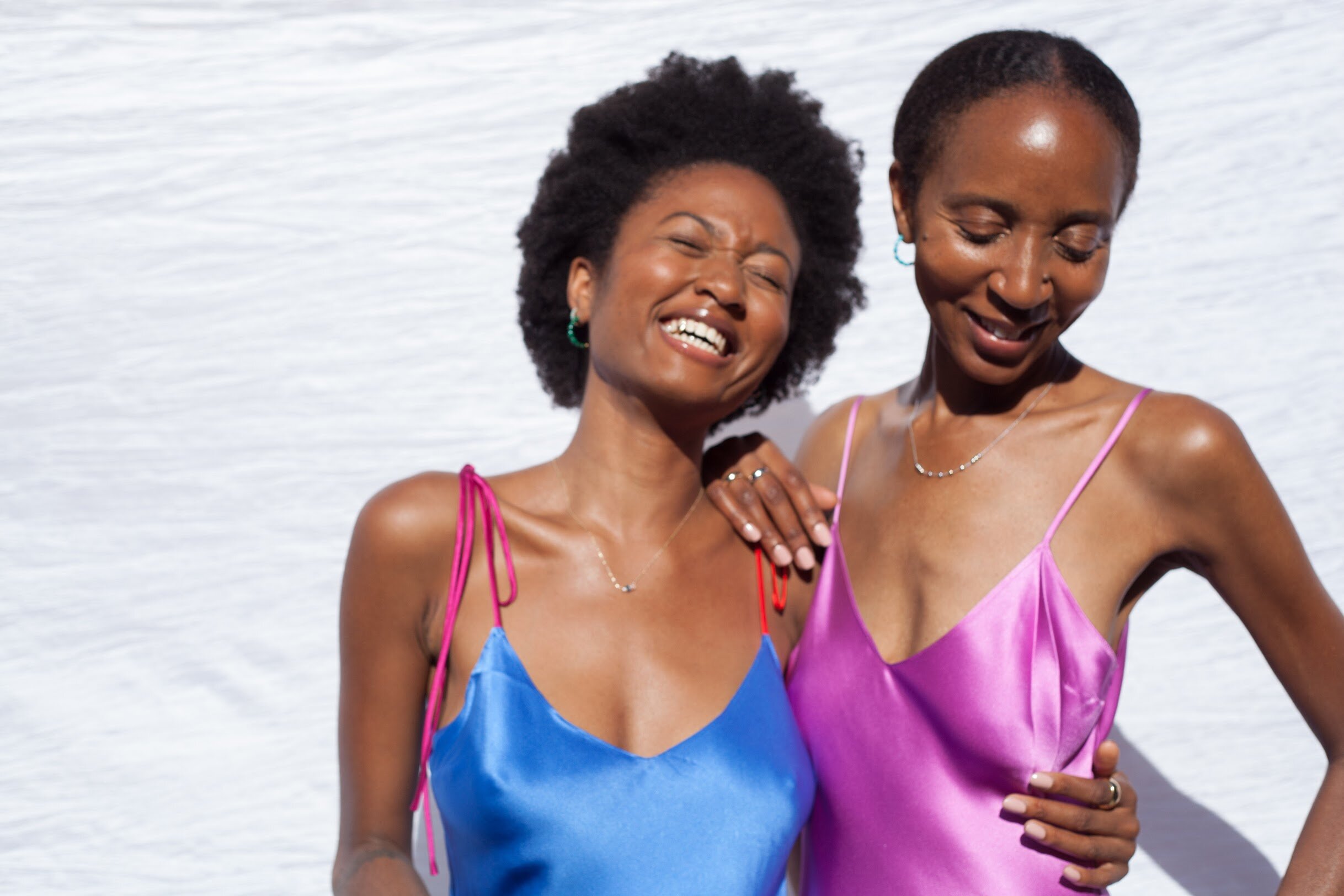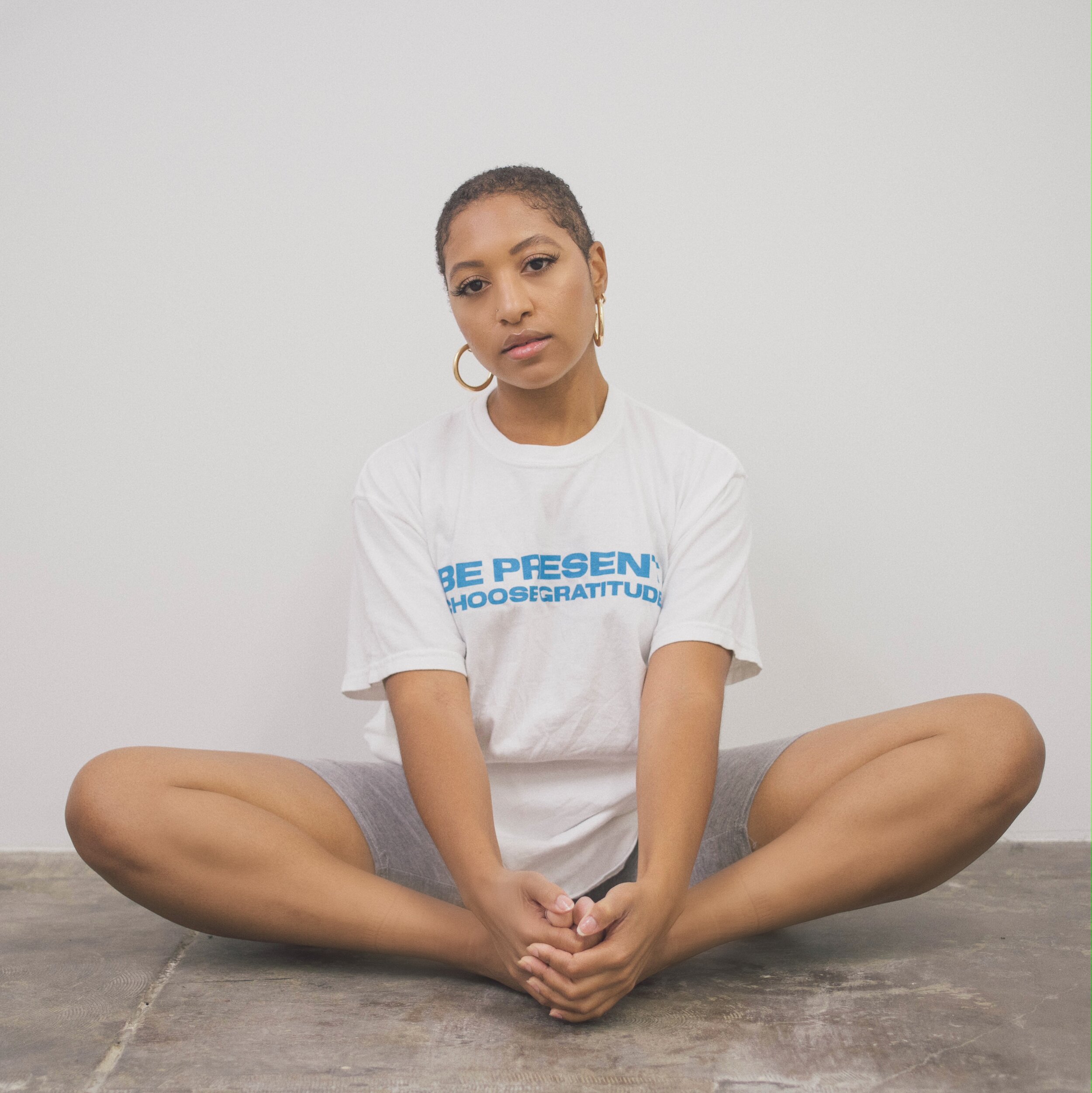Legacy, Luxury and A Labor of Love With The Mother Daughter Duo Behind House of Aama
The term ‘she gets it from her mama’ never rang more true than with the dynamic mother-daughter duo behind luxury fashion brand, House of Aama.
With an ode to antebellum south as the touchstone for their ultra chic offerings, you can’t help but notice the effortless cool that drips from the daughter of the duo, Akua Shabaka. She’s an it-girl with a calm yet notable presence of mind that’s enviable at such a young age. However, when you interact with her mother Rebecca, it’s instantly clear that she comes from a line of that seamless and highly coveted swag.
This smooth, easy, rooted cool is seeped into their brand, House of Aama, which pays homage to our African heritage in an intentional way backed by experience and research.
On a balmy August day via Zoom, SACRD sat down with the ladies to discuss the legacy that they come from, the one that they are creating and what luxury truly means.
As a brand that’s really rooted in storytelling for our culture in a very specific and intentional way, what’s your take on the social climate right now?
Rebecca: This is a really interesting time that we're living in. I'm 53 & I really never thought that I would see this sort of time. I'm not necessarily talking about the foot on the neck sort of stuff that is going on, which is just so heartbreaking, but just the resilience of black people. Black people finding their voice, taking no shorts around their ability to articulate the positioning and centering of themselves is something I've never seen in my lifetime. It's wonderful to see. For our brand, we were already in a space of being folklorists telling the stories of our people, using textiles and fabric as our medium. So, to be people that are storytellers that are looking at archives, that are doing research, to see the receptivity to that in this time is just really amazing for us. To know that we are in the position to have those eyes on us is deeply gratifying for us.
Akua: I think that, going through COVID, everything that's happened with Black Lives Matter and having the time to really look in the mirror and make certain changes are necessary for the future. Sometimes, these halts and breaks that feel very abrupt and unnecessary are the most necessary things that can happen in your life. This just added more fire to the type of work that we've been doing. My mother really made a decision a couple years ago that what works for us is telling our stories and we just dedicated ourselves to that. What we’ve realized is just how many different types of people actually relate. It just inspires us to keep going and this time has blessed us with a lot of opportunities to be able to continue our story.
How has working together shaped your relationship with each other and how does it translate into the clothing?
Rebecca: It's a healing process. It's interesting because the Bloodroot Collection is telling a story of my maternal side out of Louisiana and there's a lot of pain in those stories. When I had my child I decided I wanted to try to break some of the generational curses you young people talk about all the time.
Y'all have some language for things that we didn't quite have the language for in my generation. The work that we're doing as a mother and a daughter is not always easy and it's not always pretty. We fight, we argue, we fuss — but I tell my daughter ‘you might get me kicking and screaming for a day, but I'm coming along.’ We feel that the work that we're doing as a mother and a daughter, is really a work of healing in our bloodline. It has our whole bloodline in a better position than if that work was not being done. This work is not always easy, it's not always pretty, but we know that in this generation that we're living in and in our family context, this work is going to be done and we're the ones to do it.
Akua: I think that it's been it's just been interesting because my mother has a very traditional job, but growing up she was the one who would make all of my summer dresses and she was this very spiritual light-worker. When I had the urge to start a business, she was very much along for the ride and it's been nice to feel like I brought out my mother's inner truth. She's told me that it wasn't really an option to go to design school or into any creative field and that's why she always encouraged me to go that route and really pursue my dreams. In pursuing my dreams, I've been able to open the path of possibilities for her that she's never thought of. So, it it's been beautiful because I know she's watching me grow, but I'm also watching my mother grow.
Southern Girl Victorian Dress
$650 | House of Aama
What Does luxury mean to you as a brand and a consumer?
Rebecca: I think luxury is not just a high price point, right? I think luxury is something that has a luxurious meaning to you — something that you hold dear. And so, I'm trying to get a Telfar bag! I want a Brother Vellies bag, I'm saving up for one! I do think that in the space that we're living in now, a lot of people are getting that luxury is not just Gucci, Prada and Fendi. We can define what that is in our own community, and also ascribe luxury to our brands. I think people are starting to get that luxury isn’t something that's outside of ourselves and that we can define it for ourselves. Also not only can we define it for ourselves, we can also create it for ourselves and others.
It starts with us. If we don't support each other, we're not going to have the kind of infrastructures that we need to have. And we're not going to have anything that we want to leave future generations. So at some point, we have to start passing those dollars and they have to retain in our own community where they're circulating seven to eight times before they leave. We have to start doing that, we used to do it and there’s no reason why we can't continue to do it.
Goddess Green Tote
$45 | House of Aama
What new projects are you working on and how has the state of the world impacted that process?
Rebecca: At the beginning of the year, we were getting ready for September fashion week in New York and then COVID hit and we had to pivot. We decided that we would drop our silhouette collectible collection. We had worked on it prior to COVID & in that collection we were centering the black female form in the silhouette depiction. Because the depiction of the female form in a silhouette is black but not Black, right? [Dropping the collection] was good for us because we had a new product for consumers who were in their home. When the social justice issues behind the murder of George Floyd hit, we were then positioned to have all of these eyes on us. What we're considering now is like a smaller limited capsule collection and we’re trying to decide on the story we want to tell that's timely.
Akua: Yes, we are. And just to go into, some of the studying part — one thing that has shifted for us, but it's not really going to shift our storytelling, but it is just our reality now is that our consumer is a lot different than what we thought we were catering to.
Rebecca: That's fine, though. Our product is open to anybody, we're not limiting ourselves. If our stories resonate with a person, that's pink, blue, whatever, it doesn't really matter to me. But what matters to me is that we're going to have a consistent voice, right? So whatever that consumer is, we're gonna stay consistent with why we are here telling stories. We're going to tell the stories that we've always intended to tell — stories that center us as black females, from a black feminist gaze.
BOTANICAL BOAT NECK TOP
$80 | House of Aama
The SACRD team is dedicated to creating the ultimate #buyBlack experience for you. Every product that we feature is selected with this in mind. Items you purchase through our links may earn us a commission. Our editorial team operates independently and will only recommend products we truly love.










